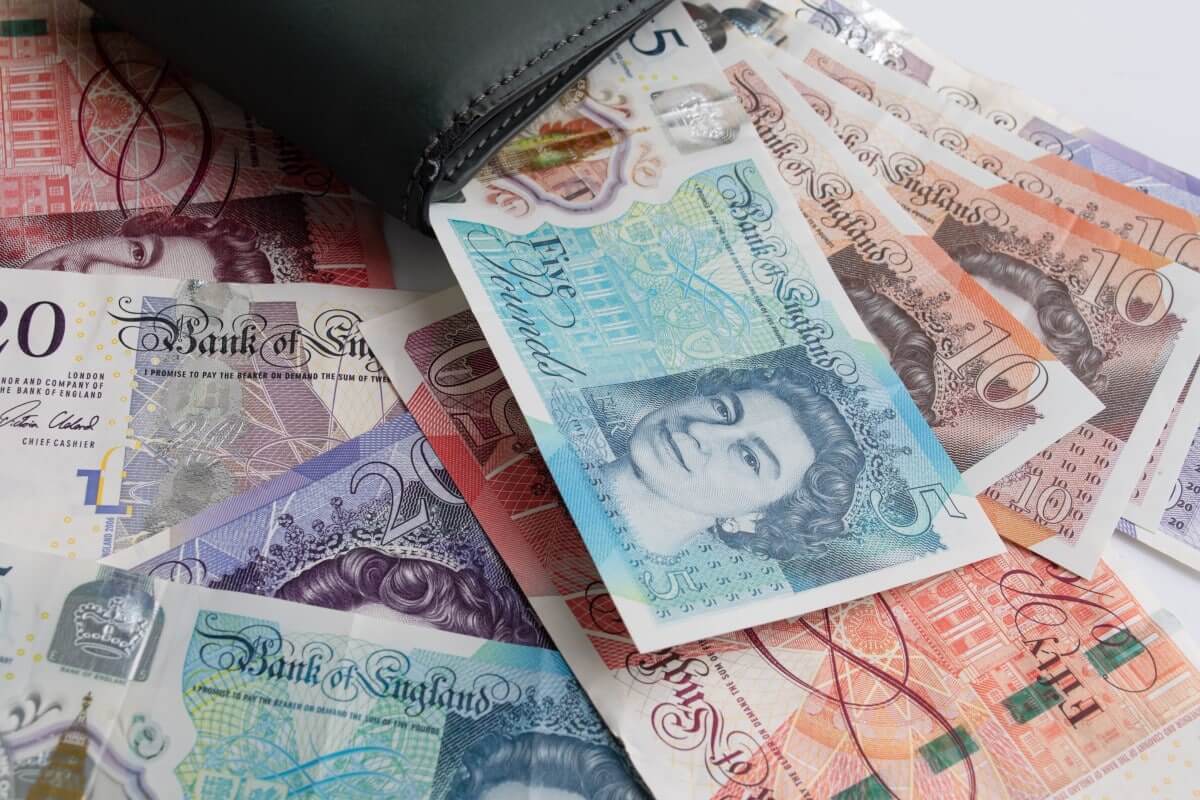
The British pound rallied on Tuesday. What about the dollar?
The sterling skyrocketed to a fresh 10-month peak against the greenback today. It added 0.4% at $1.2475, reaching its highest point since June 2022. The euro also rallied, hitting its highest point in two months. The common currency exchanged hands at $1.0938 at one point. It ended the session at $1.0921, climbing by 0.17%.
On the other hand, the U.S. dollar continued trading in the bearish territory. Investors expect the U.S. Federal Reserve to end its rate-hiking cycle soon. Such sentiment weighs on the greenback. Moreover, both U.S. and European government bond yields plummeted sharply in March. Traders moved to safe haven currencies due to worries about the struggling banking sector last month. The banking stocks have rebounded a bit since then, but they are still low.
Derek Halfpenny, the head of research for global markets at MUFG, noted that rate changes haven’t really influenced the forex markets. But the dollar might decline more in the coming days. The U.S. two-year yield stood at 3.9978% at last. It shaved off a full percentage point, dropping from its early March peak. Some traders bet on the Federal Reserve to stop rate hikes due to the banking sector’s turmoil. That also contributed to the yield’s decline.
In Europe, the two-year German yield also plunged to 70 basis points after hitting a high in March. It stood at 2.687% at last. On Monday, the Institute for Supply Management (ISM) released a new survey. It showed that manufacturing activity dropped to the lowest level in almost three years last month. New orders continued to shrink. Given this news, investors think the European Central Bank might have to deliver more rate hikes.
How are the Australian dollar and Japanese yen faring?
The Aussie dollar tumbled by 0.6% to $0.67465 on Tuesday. The Reserve Bank of Australia decided to leave its cash rate unchanged at its last meeting. The rate currently stands at 3.6%. The RBA delivered 10 consecutive hikes over the last months. However, the policymakers stated that they needed more time to assess the impact of the tightening policy to date, along with the economic outlook.
Matt Simpson, the senior market analyst at City Index, noted that the central bank seems sure that inflation has peaked in the country. Thus, it opted not to add more rate increases. The quarterly inflation report is due in a few weeks, though. If it shows that inflation remains low, the RBA will likely stop tightening.
The dollar surged forward against the Japanese yen, trading at 132.84 on Tuesday. The U.S. dollar index declined by 0.1% to 101.92 against a basket of six major currencies.
What about the EM currencies?
In Asia, emerging currencies and equities fluctuated today. Traders were concerned that inflation might increase in some countries. The Organization of Petroleum Exporting Countries cut oil production, contributing to those worries. In addition, there’s talk about the possible global economic recession.
Despite the negative market sentiment, the Malaysian ringgit gained on Tuesday, adding 0.3%. The Indonesian rupiah also jumped by 0.4%. These two gained the most during this session, thanks to the soaring crude oil prices.
Paul Mackel, the global head of FX research at HSBC, noted that the higher oil price supports the ringgit. However, thus far, the currency is gaining modest amounts.
On Sunday, OPEC+ announced that it would cut output targets, decreasing the supply by 1.16 million barrels per day. This news caused Brent’s crude price to jump higher. OCBC analysts noted that OPEC cuts might pressure oil prices in the coming weeks. And that might bolster inflation. Thus, market participants are concerned.
Other Asian currencies, such as the Thai baht, the Singapore dollar, the Philippine peso, and the Chinese yuan, exchanged hands flat or decreased, some losing as much as 0.3%.
However, the South Korean won rebounded after trading in the red during the previous session. The currency surged forward by as much as 0.6% on Tuesday. According to the Asian trade bellwether, inflation cooled more than analysts expected. As a result, investors now bet that the central bank will end its rate-tightening cycle soon.
Moreover, among Asian stocks, the Malaysian, Indonesian, and Philippines indexes plummeted, trading lower between 0.4% and 0.7%. Other shares in Singapore soared by 1%, while South Korean ones added 0.3%.




